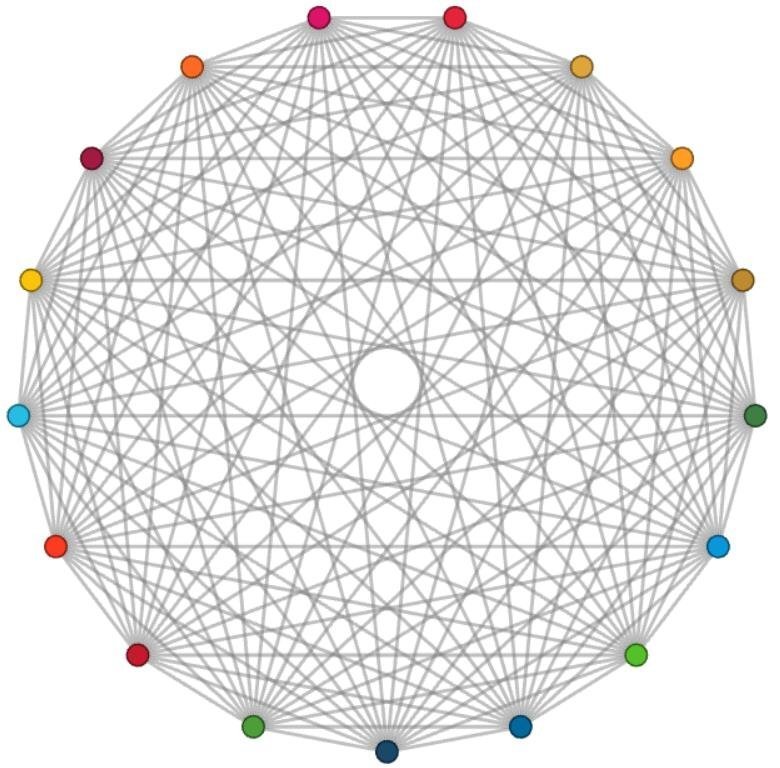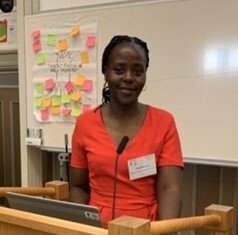PhD student Irene Wanyana joins the team to explore SDG linkages in Uganda

Our newest team member Irene Wanyana joins the Department of Global Public to pursue her PhD. In her research project titled Multisectoral Approaches to Sustainable Health in Uganda, A focus on the role of climatic variabilities on maternal and child health, Irene aims to explore the linkages that exist between health and other Sustainable Development Goals (SDG) in Uganda.
Irene Wanyana is a health informatics officer and Research Associate at Makerere University School of Public Health in Uganda. She has a background in Information technology, computing, and public health, with a particular interest in digital health and big data for health care. She is also one of the project lead members at the Centre of Excellence for Sustainable Health, a collaboration between Karolinska Institutet and Makerere University.
The Centre of Excellence for Sustainable Health defines sustainable health as the multisectoral area for study, research, and practice towards improving health and well-being for all, while staying within planetary boundaries. Multisectoral approaches are crucial for achieving sustainable health and development. However, little is known about how health interlinks with other SDGs at the country level in Uganda.

The interlinked nature of the SDGs
Irene’s research aims to explore the multisectoral nature of the SDGs, including the linkages between health and other SDGs in Uganda. Through workshops and interviews with stakeholders and using the SDG synergies framework, she will explore the most prominent promoting and restricting linkages between health and other SDGs in the Uganda context and stakeholders’ perspectives and perceptions on these.
"Understanding these interconnections will allow decision-makers and policymakers to implement health strategies that not only maximize potential synergies between other SDGs but also mitigate restrictions that could arise from particular interventions" says Irene Wanyana.
Climatic variabilities on maternal and child health
Moving from a broader perspective, Irene will research the associations between climatic variabilities and maternal and child health in Uganda. With the help of machine learning techniques, the project aims to determine the associations between Goal 3 (Good Health and Wellbeing) and Goal 13 (Climate Change) using data comprising rainfall, temperature, humidity, and maternal and child health related outcomes.
“Identified associations and patterns can make predictions that can be used to support future planning for interventions and decision-making for maternal and child health conditions in Uganda” says Irene.
Accepting a challenge
Hampus Holmer, the reviewer at Irene’s ISP that recently took place, did an excellent job asking questions that left food for thought both for Irene and her supervisors and reflections for the coming journey that pursuing a PhD entails. Hampus curiously asked why a health informatics specialist with quantitative method skills chose qualitative methods for three out of four PhD studies? The question was the answer.
“I believe as a researcher, you should have agreeable skills in various areas and methods. I have an interest in qualitative methods because I think there is a lot for me to learn and I look forward to that learning”, Irene answered.
She was joined by many participants at the ISP which shows the great interest and need for this topic to be researched. Disentangling how the SDGs are linked is complex and challenging, but crucial as we know they cannot be achieved in isolation. The team is excited for her coming research and the contribution it will have on understanding how to achieve the Agenda 2030.
"Irene and I have already worked together for almost two years in the CESH project Building capacity for sustainable development in fragile states - spearheading a broader development agenda in Africa through health and well-being (SDGCap). I am now excited to welcome Irene to the department as a PhD student and look forward to our common academic collaboration. Welcome Irene!", says main supervisor Nina Viberg.
Irene Wanyana´s ISP seminar took place February 20, 2023, at Widerströmska building and online.
